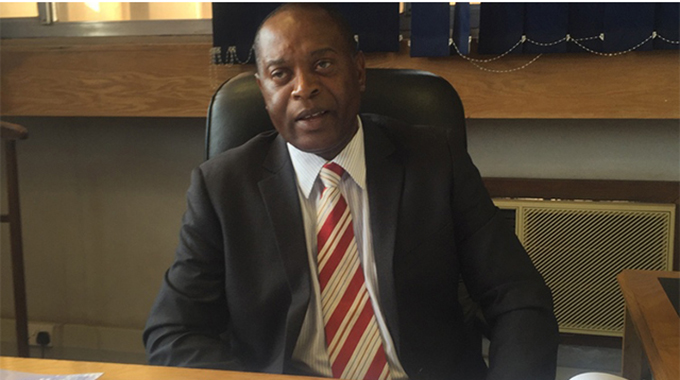Two-hand strategy to deal with sanctions

Nobleman Runyanga Correspondent
This week Zimbabwe, the Southern African Development Community (SADC) and the rest of the progressive world joined forces and voices to press the West to remove the illegal sanctions that it imposed against innocent Zimbabweans in 2001.
As expected, President Mnangagwa gave a statement for the occasion, but unlike in the past, he did more than just speak.
He travelled to Rutenga on the same day to commission the National Biotechnology Authority of Zimbabwe (NBAZ)’s Marula/Mapfura Processing and Value Addition Plant.
Unlike in the past when he would undertake such trips by air, the President and his party drove the 443 kilometre and six-hour trip to Rutenga to enable him to assess for himself the progress that has been made so far on the Harare-Masvingo-Beitbridge highway rehabilitation project.
The President’s speech and trip are symbolic of his administration’s approach to and strategy in fighting against the Western-imposed sanctions.
The administration uses every opportunity to call for the removal of the sanctions and fights their effects on the ground.
As early as January 2018, he made himself very clear about his approach to the sanctions imposed on the people that he leads.
The January 14 2018 edition of The Sunday Mail reporting on his address to traditional leaders in Gweru the previous day, highlighted that President Mnangagwa had urged Zimbabweans to stop moaning about the effects of sanctions on the country and, instead, focus on leveraging the available natural and human resources to turn the economy around, grow it and drive development.
This does not mean that Zimbabweans should not express their emotions about the effects of the punitive measures on their lives.
The President’s message is that with one hand we should fight for the removal of the measures and with another, fight the effects of the sanctions on the ground by taking advantage of our natural advantages and endowments to improve the people’s lives.
Although the President was part of the previous administration, when it comes to dealing with sanctions, he has proved that he is cut from a different cloth altogether.
Re-engagement
On assuming office on November 24 2017, the President realised that Zimbabwe could not develop by continuing in the past diplomatic trajectory of “keep your Britain and I’ll keep my Zimbabwe.”
He realised that the previous republic’s go-to-hell diplomacy would only serve to worsen the lot of the innocent sanction-wearied Zimbabweans instead of improving their lives.
This is the reason why he adopted the re-engagement policy to open communication and interaction with countries and nations which had slammed their doors on Zimbabwe.
While re-engagement is a journey rather than an event, the policy is already producing results.
For example, President Mnangagwa is set to travel to the United Kingdom for the climate change summit, COP26, which is running from October 31 to November 12 2021 in Glasgow, Scotland, on invitation.
This is the first time in over 20 years that a Zimbabwean leader is officially visiting the UK.
Zimbabwe will be meeting other members of the global community like any other country and not a pariah State or a lesser global citizen any more.
Despite the United States’ position on the sanctions that it imposed on Zimbabwe, that country is also warming up to Zimbabwe’s re-engagement overtures.
In April 2020 Zimbabwe entered into a US$51m facility with the American agricultural equipment manufacturer, John Deere under which the country will receive 1300 tractors, 80 combine harvesters and other items of agricultural equipment.
Zimbabwe needs over 30 000 tractors.
The re-engagement policy, coupled with the country’s “Zimbabwe is open for business” mantra and the enactment of the Zimbabwe Investment and Development Agency Act as well as the operationalisation of the authority have seen new investors coming in.
The Muzarabani oil project started back in the early 1980s, but it took the new administration’s deliberate policy to woo investors for the Australian Stock Exchange-listed Invictus Energy to take up the mining opportunity.
Zimbabwe is on the cusp of oil mining because of the country’s investment policies.
Local resources
It is important that the President travelled to Rutenga by road because he is a firm believer in the benefits of building a solid infrastructural foundation upon which to develop the country’s economy.
Instead of borrowing to finance such projects as major road rehabilitation, his Government has circumvented the effects of sanctions by using local resources mobilised using existing mechanisms such as the Zimbabwe National Road Administration (ZINARA).
During the old dispensation, most of ZINARA’s revenue was slipping into various hands as the parastatal was rocked by one financial scandal after another but not anymore.
During a Procurement Regulatory Authority of Zimbabwe (PRAZ) conference held in Victoria Falls last week, ZINARA disclosed that of the Z$16 billion allocated by Government to the parastatal to finance the ongoing Emergency Road Rehabilitation Programme road authorities like local authorities had only claimed a mere 30 percent of the funds.
This exposed sabotage on the part of some local authorities like the City of Harare which, instead of claiming the funds and rehabilitating its roads, has been playing politics by pushing for the motor vehicle licensing function to be taken away from ZINARA and returned to local authorities.
This would enable the opposition councillors to siphon some of the revenue for the benefit of their political outfit.
This, however, is not surprising.
Even early nationalists also had to fight the colonialists and their own kinsmen who were fighting in the enemy’s corner.
“Each time I want to fight for African rights, I use only one hand because the other hand is busy trying to keep away Africans who are fighting me,” the late nationalist and trade unionist, Benjamin Burombo (1909-1959) said and his words continue to ring true of the West’s enablers in our midst.
Only a few days ago one Twitter user, Samazi@AllanMafy tweeted on October 20 2021 that the on-going major road rehabilitation programme was a waste of time as bitumen was peeling off the roads.
He used a video of a woman peeling bitumen off the edges of a new highway as “evidence.”
However, five days later, the fact checking site, zimfact.org proved and published that the road was, in fact, the President Lucas Mangope Road in South Africa’s North West Province.
Samazi is in the same class with other Zimbabweans who join foreign forces in claiming that Zimbabwe’s socio-economic challenges are caused by corruption and not sanctions.
If, indeed, the sanctions are of no force or effect on the lives of Zimbabweans, one wonders why the West is keeping them in place.
Home-grown solutions
President Mnangagwa’s other major strategy against sanctions is the adoption of home-grown solutions to deal with the effects of the measures and other challenges like climate change.
One such initiative that readily come to mind is the Pfumvudza/Intwasa agricultural programme which has enabled Zimbabweans to deal with fickle rains and ensure food security at family level.
The project that the President travelled to Rutenga to commission is another example of how Government is using the skills and knowledge inherent in national institutions such as the NBAZ to add value to agricultural produce and wild fruits and create employment in the process.
Prior to the Rutenga trip, the President had travelled to Mutoko on October 15 2021 to commission a similar project dealing with the processing of fruit and vegetables from the area, which is known for horticulture.
In July, the President officially opened Verify Engineering, a medical oxygen production company run by the Harare Institute of Technology that is based in Mutare.
This came against the background of oxygen shortage during the height of the third wave of the COVID-19 pandemic.
These projects and the renewed interest in agriculture by the youth are setting Zimbabwe on a rural development and urban to rural migration trajectory that will promote rural development and reduce the socio-economic effects of sanctions.
Devolution
While President Mnangagwa’s predecessor, the late former President Robert Mugabe, was hesitant in terms of implementing devolution, which is enshrined in the 2013 national charter, the President Mnangagwa did not think twice about the issue and he has been proved right.
Ever the pragmatic leader, President Mnangagwa has used devolution funds to bring meaningful development to citizens in far flung rural areas.
Most of the devolution projects cover infrastructure construction or restoration.
Other areas that are benefiting from devolution funds are the resettlement areas, which Government could not provide with requisite infrastructure as its hands were tied by sanctions before it could build schools and clinics for the land reform beneficiaries.
The beauty of the concept of devolution is the fact that citizens on the ground make their own priority lists for their areas’ projects.
No one dictates the needs and priorities of communities except the communities themselves.
Following Operation Restore Legacy in November 2017, the MDC Alliance leadership panicked.
That party’s leader, Nelson Chamisa, his deputy, Tendai Biti and Human Rights Watch Africa Director, Dewa Mavhinga rushed to the US the following month to ask that sanctions be kept in place.
When the same opposition outfit lost the 2018 polls, Biti told the media that his faction would mobilise for more sanctions against Zimbabweans and ensure that Government under Zanu PF would not get a cent in foreign credit facilities.
As 2023 beckons, it is up to the electorate to choose wisely.
It is up to voters to choose between those who are working hard to fend off the effects of sanctions on their lives or those who join foreigners in using their suffering as political ammunition.








Comments